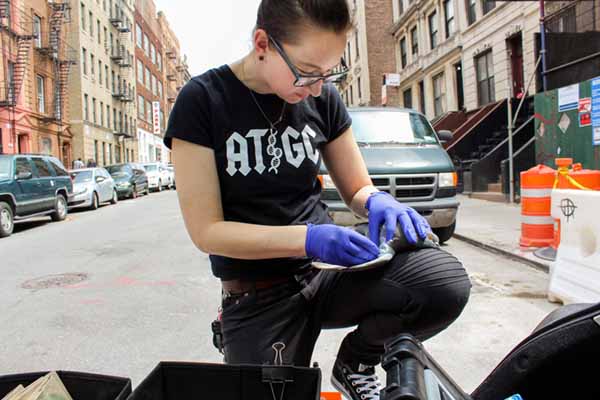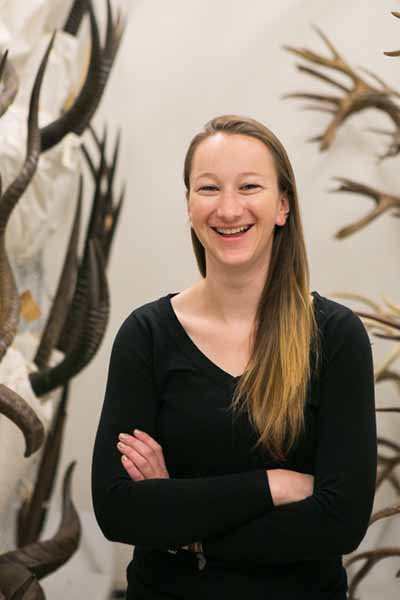
Urbanization is drastically changing landscapes across the globe, leading to changes in the ecological and evolutionary dynamics within cities. These changes may restrict, facilitate, or have no effect on gene flow, depending on the organism and the extent of urbanization. In the case of human commensals with high dispersal ability, urbanization can facilitate gene flow by providing continuously suitable habitat across a wide range. Conversely, suburban or rural areas with lower human population density may act as a barrier to gene flow for these human commensals. Spatial population studies provide a means to understand genetic connectivity across large areas that encompass multiple metropolitan areas. Dr. Carlen examined the spatial genetic patterns of feral pigeons (Columba livia) living in cities in the northeastern United States as well as the behavior of pigeons in New York City. She will also discuss her recent work on the population genetics of urban Eastern Gray Squirrels (Sciurus carolinensis) in St. Louis, Missouri.

Dr. Elizabeth Carlen is a National Science Foundation and Living Earth Collaborative postdoctoral fellow at Washington University in St. Louis, where her research focuses on the impacts of urbanization on Eastern Gray Squirrels. Dr. Carlen received a Ph.D. in biological sciences from Fordham University, where she worked on the evolutionary ecology of urban pigeons. Her dissertation work was featured on Saturday Night Live and written about in Wired magazine, and led The New York Times to refer to her as the “Pigeon Stalker.” In addition to her research, she is a co-founder and editor of the urban evolution blog Life in the City: Evolution in an Urbanizing World.

